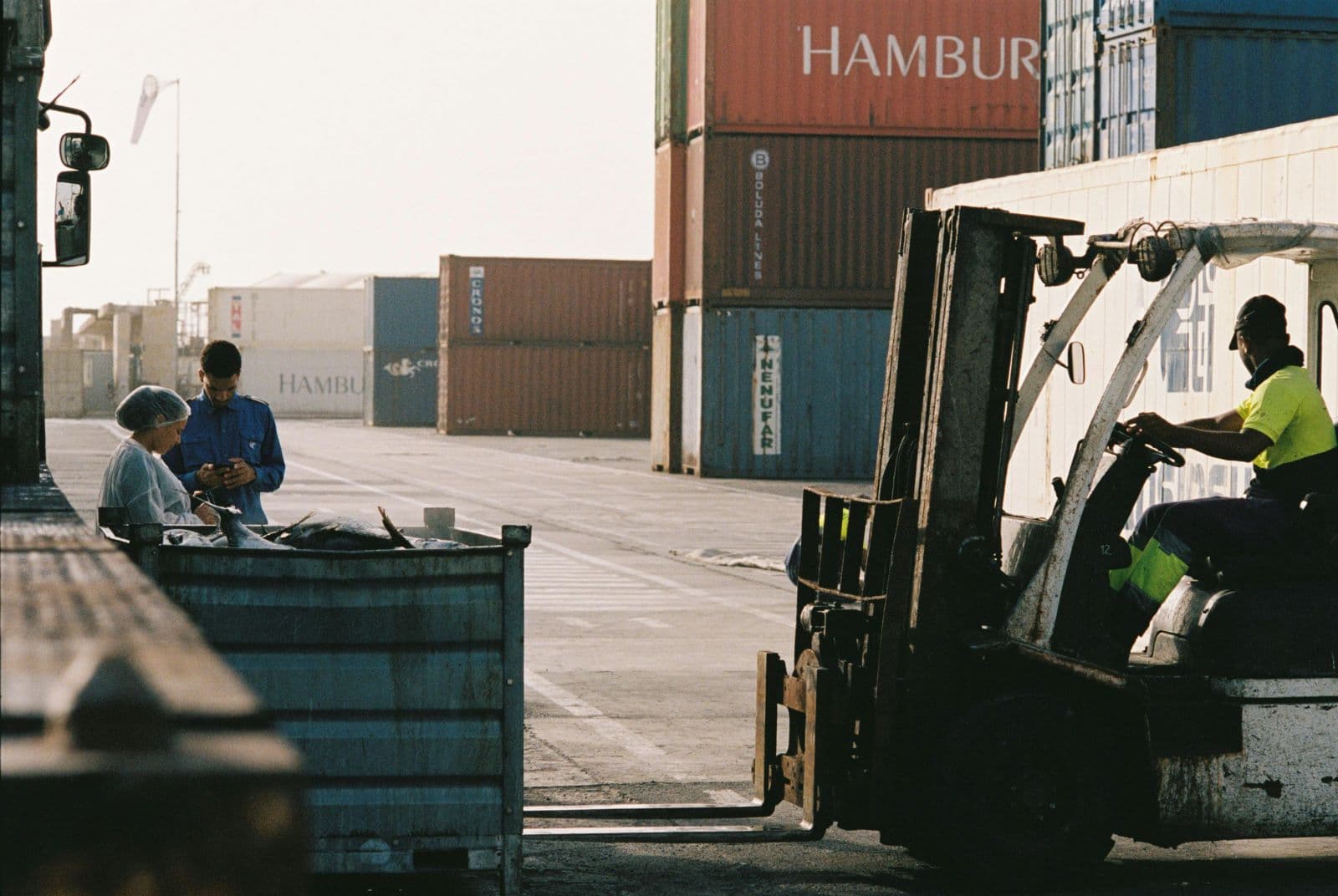Three-Dimensional Risk in African Trade Compliance: Regulatory, Reputational, and Resiliency Factors
Go to all updates
Gone are the days when compliance merely entailed adhering to regulatory frameworks; today, it encompasses a multifaceted approach that addresses regulatory, reputational, and resiliency factors. Governments worldwide enact a myriad of regulations governing imports, exports, tariffs, sanctions, and product standards, among others. For businesses, ensuring compliance with these regulations is not only a legal obligation but also a prerequisite for unhindered market access and operational continuity.
In recent years, regulatory frameworks have become increasingly stringent and intricate, spurred by evolving geopolitical dynamics, trade disputes, and emerging challenges such as cybersecurity threats and environmental concerns. Organizations must navigate through this maze of regulations, grappling with complexities such as customs procedures, export controls, and sanctions regimes, all while striving to maintain operational efficiency and competitiveness.
For instance, the implementation of the African Continental Free Trade Area (AfCFTA) aims to create a single market for goods and services but understanding and adhering to the diverse regulatory frameworks of participating nations become critical. Organizations need to adopt proactive measures to stay abreast of evolving regulations, ensuring that their goods can traverse borders smoothly without incurring penalties.
Beyond regulatory obligations, businesses must contend with the intangible yet potent force of reputational risk. In today's interconnected world, where information travels at the speed of light through social media and digital platforms, a tarnished reputation can have far-reaching consequences, impacting consumer trust, investor confidence, and stakeholder relationships.
The Uyghur Forced Labor Prevention Act (UFLPA) is a glaring example of how reputational risks are intertwined with trade compliance, even in the context of African nations. While the UFLPA specifically addresses forced labor in the Uyghur region of China, it underscores the global significance of labor practices in supply chains.
For African businesses, this means not only complying with domestic labor laws but also ensuring that their supply chains are free from any associations with forced labor. The reputational damage associated with allegations of non-compliance with labor standards can have far-reaching consequences, affecting relationships with international partners and investors.
Trade compliance failures – whether related to unethical sourcing practices, environmental violations, or human rights abuses – can inflict irreparable damage to a company's brand and credibility. The rise of ethical consumerism and the growing emphasis on corporate social responsibility (CSR) have amplified the importance of transparency and accountability in supply chains. As such, businesses are under increasing pressure to demonstrate ethical conduct, sustainability practices, and a commitment to social justice throughout their operations.
Volatility, uncertainty, complexity, and ambiguity (VUCA) have made the need for resilience even more important for businesses that want to handle problems and do well in rough conditions. Things like supply chain problems, global instability, natural disasters, and changes in the
economy as a whole can all make it harder for goods and services to move freely across borders. This is called resilience risk in trade compliance.
When the COVID-19 pandemic happened, it showed how weak global supply chains are. This made companies rethink their recovery plans and make their supply chains stronger. Businesses are putting more emphasis on resilience as a strategic imperative in trade compliance. They are doing things like expanding their sourcing areas, adopting just-in-case inventory management, and using digital technologies to improve real-time visibility and teamwork.
Integration of Three-Dimensional Risk Management
Managing three-dimensional risk in trade compliance requires a proactive, integrated approach that goes beyond the separate functions of a company. Organizations shouldn't treat regulatory, reputational, and resilience factors as separate issues. Instead, they should see how they are connected and use a comprehensive risk management strategy.
A big part of this approach is making sure that trade compliance efforts are in line with the overall goals and values of the company. Companies can build a culture of compliance throughout their organization by including compliance issues in the strategy decision-making process. This will make risk management an integral part of their business. To do this, teams need to work together more, employees need to be trained and developed, and technology needs to be used to automate compliance processes and improve visibility.
For trade compliance risk management to work well, it needs to be constantly watched, evaluated, and changed in reaction to new threats and opportunities. Organizations can keep improving their risk management strategies and make themselves more resilient to uncertainty by setting key performance indicators (KPIs), doing regular checks, and talking to outside stakeholders. By continuously monitoring and adjusting their risk management strategies, organizations can stay ahead of potential challenges and ensure compliance with regulations. Engaging with external stakeholders can provide valuable insights and help identify emerging risks that may impact the business.
Holistic Approaches to Mitigate Three-Dimensional Risk
Given the interconnected nature of regulatory, reputational, and resiliency factors, a holistic approach to trade compliance is imperative for African businesses. Unlike the traditional siloed approach, where compliance is often seen as the responsibility of a specific department, organizations must break down internal barriers and foster collaboration across various operational areas.
Identifying Key Stakeholders
One of the first things that needs to be done in order to construct a framework for collaboration is to identify key persons and stakeholder groups within the company who are capable of making meaningful contributions to the discussion regarding compliance. Stakeholders from the areas of law, procurement, trade compliance, finance, information technology, logistics, and supply chain management are involved in this process. It is essential to involve individuals from diverse
backgrounds and expertise to ensure a comprehensive approach to compliance. By engaging stakeholders from different departments, organizations can leverage a wide range of perspectives and resources to develop effective strategies.
Special Economic Zones (SEZs) as Catalysts for Compliance and Competitiveness
Making use of Special Economic Zones (SEZs) is yet another innovative method that African companies can implement in order to improve their compliance with trade regulations and their level of competitiveness. For the purpose of attracting investment, promoting exports, and stimulating economic growth, these designated zones provide one-of-a-kind regulatory frameworks and incentives.
As an example of how special economic zones (SEZs) can work as engines of industrial development while simultaneously addressing regulatory, reputational, and resiliency aspects in trade compliance, the Meridian Industrial Park serves as an example within the context of Ghana. Meridian Industrial Park offers streamlined customs procedures, investment incentives, and infrastructural assistance, contributing to an environment that is friendly to the growth of businesses. Meridian Industrial Park is strategically positioned and backed by policies that are advantageous to industry. The easy clearing of customs, visibility of the supply chain, and compliance monitoring are all made possible by collaborations with trustworthy third-party entities and technology providers that are part of the Meridian Industrial Park ecosystem! In addition, special economic zones (SEZs) such as the Meridian Industrial Park are in an excellent position to fit with the objectives of sustainable development while simultaneously generating economic progress.
Executive Leadership and Governance
It is essential to have executive sponsorship in order to better encourage internal collaboration. It is possible to build a uniform vocabulary and framework by appointing a high-ranking executive, such as a Chief Ethics Officer or Chief Compliance Officer, to lead conversations about governance. A coherent approach to risk mitigation in three dimensions is ensured as a result of this, which helps break down departmental silos simultaneously. This leadership also helps to ensure that ethical considerations are integrated into decision-making processes, promoting a culture of transparency and accountability within the organization. By fostering a strong tone at the top, companies can effectively navigate complex regulatory environments and build trust with stakeholders.
Partnerships with Third-Party Entities and Technology Providers
In addition to working together internally, it is possible to discover prospects that have not yet been explored by establishing relationships with established third-party partners and technology providers. In order to effectively solve compliance difficulties, it is possible for freight forwarders, customs brokers, and compliance management companies to play the most important roles. Streamlining operations and improving visibility throughout the supply chain can be accomplished through the utilization of technological solutions such as enterprise resource planning and contract management systems.
ESG Reporting and the Changing Landscape
It is becoming increasingly important to have a collaborative compliance framework as a result of the global movement toward Environmental, Social, and Corporate Governance (ESG) reporting. In light of the fact that initiatives like as the European Sustainability Reporting Standards (ESRS) are having an effect on businesses all over the world, a proactive integration of sustainability and transparency into trade compliance plans is required of African organizations. This integration will not only help organizations meet regulatory requirements but also improve their reputation and competitiveness in the global market. By incorporating ESG reporting into their compliance framework, African businesses can demonstrate their commitment to sustainable practices and attract investors who prioritize environmental and social responsibility.
Conclusion
The complex landscape of African trade compliance encompasses regulatory, reputational, and resiliency factors, intertwining legal obligations with the imperatives of market access and operational continuity. As regulatory frameworks evolve amidst geopolitical shifts and emerging challenges like cybersecurity, businesses face the daunting task of navigating intricate customs procedures and export controls while safeguarding against reputational risks stemming from labor practices and ethical sourcing. In this dynamic environment, proactive measures and integrated risk management strategies that involve collaboration across departments, executive leadership, and partnerships with third-party entities and technology providers become imperative. Embracing initiatives such as Special Economic Zones and ESG reporting not only enhances compliance but also fosters competitiveness and sustainability, positioning African businesses for success in the global market.
More
updates

How Industrial Parks Are Powering Economic Growth in Africa
Blog∙30th April, 2025

Addressing The Infrastructure Gaps in Sub-Saharan Africa
Blog∙11th March, 2025

Regional vs. National Approaches to Trade Facilitation: Which is More Effective for Africa?
Blog∙11th December, 2024

Earn Big with Dawa Refer & Earn: Unlock Lucrative Rewards for Every Business You Refer!
Blog∙13th November, 2024

Leapfrogging the Growth Trap: Policy Initiatives for Developing Economies in a Globalized World
Blog∙4th October, 2024
